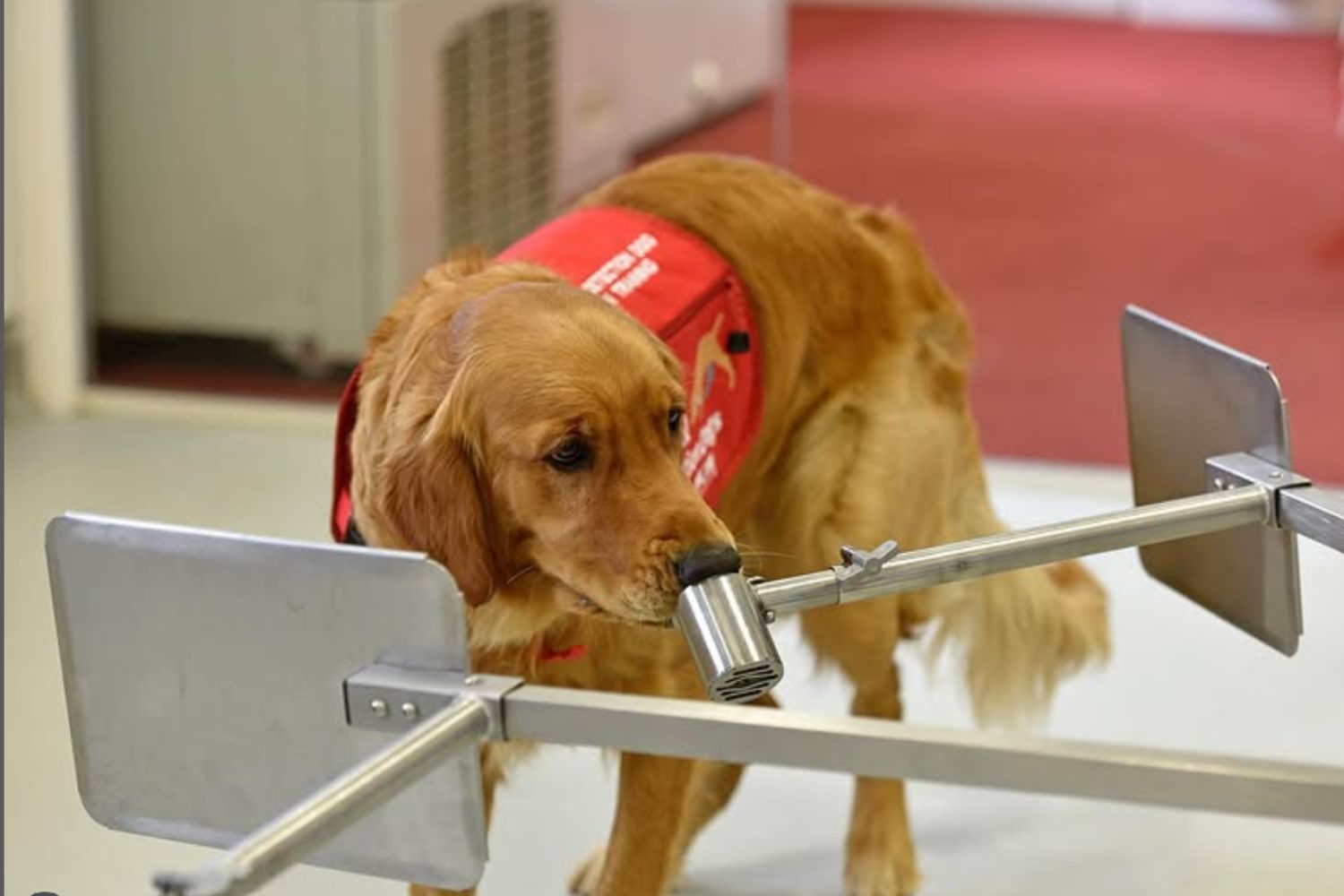Dogs trained to sniff out Parkinson’s from skin swabs show up to 80% accuracy, offering hope for early, non-invasive diagnosis.

@medicaldetectiondogs/Instagram
Early diagnosis of Parkinson’s disease remains one of the most elusive challenges in modern medicine. The initial signs—tremors, slowed movements, subtle changes in posture—often masquerade as typical signs of aging. By the time a conclusive diagnosis is made, a significant portion of the dopaminergic neurons is already irreversibly damaged.
But a new kind of diagnostic hope is wagging its tail.
Meet Bumper, a Golden Retriever, and Peanut, a black Labrador. These two dogs are at the center of an innovative British study that could change the way we approach Parkinson’s detection. Trained by the organization Medical Detection Dogs—the same group that taught canines to sniff out cancer and COVID-19—Bumper and Peanut have learned to identify Parkinson’s disease simply by smelling skin swabs.
A dog’s nose knows
The results are nothing short of astonishing. Peanut correctly identified 80% of Parkinson’s cases, while Bumper achieved a 70% success rate, both with a specificity of 90%. The swabs were collected from more than 200 volunteers at 25 clinics across the UK, using gentle gauze wipes on the neck and back—areas particularly rich in sebum, the waxy substance produced by our skin.
So, does Parkinson’s have a smell?
It appears it might. According to researchers, the disease alters the chemical composition of sebum, producing a distinct set of volatile organic compounds (VOCs) linked to the metabolic changes in Parkinson’s patients. This unique chemical blend gives off a scent that is undetectable to humans—but not to a trained dog’s hyper-sensitive nose.
The scientific curiosity surrounding this possibility was sparked by Joy Milne, a woman from Scotland with an extraordinary sense of smell. She claimed she could literally “smell” Parkinson’s on her husband before he was officially diagnosed. Her story gave rise to a whole new line of research.
Beyond blood tests and MRIs
At the moment, there is no reliable early test for Parkinson’s. Bloodwork, MRI scans, even neurological exams typically fail to catch the disease before symptoms emerge. That’s why this dog-based research could be a game-changer.
“These findings are promising,” says Nicola Rooney of the University of Bristol, “and they could pave the way for standardized diagnostic biomarkers.”
Claire Guest, CEO of Medical Detection Dogs, shares that optimism. “Our goal is to enable earlier diagnoses so that treatment can begin sooner and potentially slow the progression of the disease,” she explains.
Of course, Bumper and Peanut’s work is only the beginning. Scientists are now focusing on isolating the specific VOCs responsible for the Parkinson’s scent. If successful, this could eventually lead to a chemical-based test—fast, non-invasive, and affordable. But until that day arrives, the noses of dogs may be our most sensitive and surprisingly effective allies in the fight against Parkinson’s.
Source: Journal of Parkinson’s Disease
